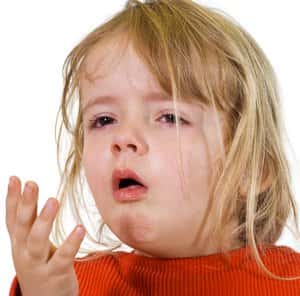
Parents ought to be outraged. They have been betrayed by drug companies as well as the Food and Drug Administration.
For decades the FDA has allowed hundreds of cough and cold remedies to be sold for treating kids with sniffles and coughs. These products were permitted even though there wasn’t any scientific proof that they worked to help children recover more quickly or even to alleviate their symptoms.
Since 1985, six scientific studies of cough or cold preparations have been conducted on children under 12. None found a difference between the active drugs and the placebo (New England Journal of Medicine, Dec. 6, 2007).
Nonetheless, drug companies spend roughly $50 million annually promoting these products to parents. They frequently tout them as “pediatrician recommended,” even though the American Academy of Pediatrics discourages their use. It is estimated that more than one-third of American households has bought a pediatric cough or cold remedy in the last few years.
If such products were merely ineffective, that would be bad enough. The problem is that they can also cause harm. The Centers for Disease Control and Prevention report that in 2004 and 2005 more than 1500 emergency room visits were linked to cough and cold products in children under two.
Oral decongestants in young children can affect heart rhythm and occasionally cause hallucinations. Adolescents sometimes abuse cough medicines containing dextromethorphan. Toxic effects can range from nausea, vomiting and dizziness to clumsiness, slurred speech, stupor or coma. FDA has identified 123 deaths in young children that can be attributed to cough and cold remedies.
Why has the FDA been so slow to act? Perhaps the problem is that children don’t have an active lobby. And no one bothered to look carefully at the data, or lack thereof.
It was only after pediatrician Joshua Sharfstein, MD, mobilized his colleagues to petition the FDA that the agency roused itself from its lethargy. Dr. Sharfstein, commissioner of health for Baltimore, asked the FDA to declare publicly that these cough and cold products “have not been shown to be safe and effective for children under six.” He and his petitioners also want the agency to crack down on misleading marketing.
The FDA is not likely to ban cold and cough remedies for children, even though the data are so discouraging. So what should parents do when kids come down with sniffles, sneezes and coughs?
For nasal congestion a saline spray is certainly safe. Coughs may respond better to old-fashioned home remedies than drugstore formulas. New research from Penn State College of Medicine (Archives of Pediatrics and Adolescent Medicine, Dec. 2007) suggests that buckwheat honey may be effective for calming a child’s cough. (Honey is not appropriate for babies under one year old.)
Parents also tell us that a dab of Vicks VapoRub on the soles of the feet can relieve a nighttime cough. Anyone who would like more details will find them in our Guide to Colds, Coughs, and the Flu and Unique Uses for Vicks.

